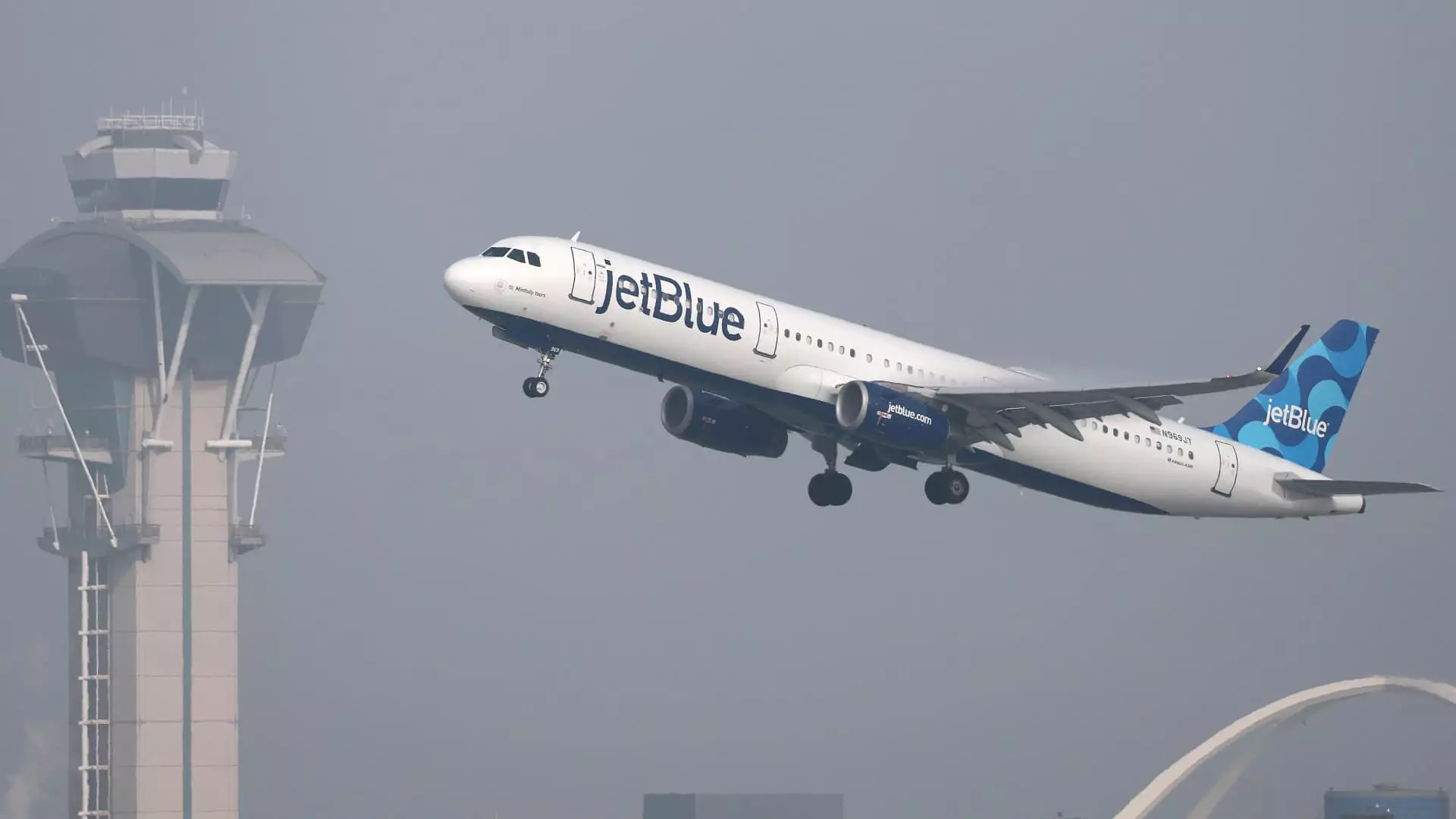JetBlue Airways, a budget-friendly carrier that recently celebrated its 25th anniversary, finds itself navigating tumultuous waters in the aviation industry. Following a series of legal setbacks, including the rejection of key partnerships and acquisition attempts, JetBlue is seeking new alliances with “multiple airlines.” This strategic pivot comes as the company aims to solidify its market position against formidable competitors such as Delta, American Airlines, and United Airlines. JetBlue’s president, Marty St. George, emphasized the airline’s readiness to pursue advantageous partnerships that could enhance its operations.
In 2023, a federal judge deemed JetBlue’s collaboration with American Airlines in the Northeast as anticompetitive, marking a significant hurdle for the airline’s expansion efforts. The previous year, another judge thwarted JetBlue’s attempt to acquire budget airline Spirit Airlines, a move that was expected to diversify its service offerings. These legal rulings highlight the regulatory complexities that airlines face when attempting to consolidate or form partnerships within an already competitive market. The failure to secure these deals not only affects JetBlue’s growth strategy but also underscores the heightened scrutiny from regulators aimed at maintaining competitive balance in the aviation sector.
In light of these setbacks, JetBlue’s leadership is now actively pursuing new opportunities to collaborate with fellow airlines that could lead to enhanced service and increased customer loyalty. St. George expressed optimism about finding a partnership that aligns with the company’s operational goals, stating, “If we find a deal that’s accretive, we’ll absolutely do it.” Such collaborations could be crucial for JetBlue to broaden its network and increase its market share in an industry dominated by larger carriers. The need for partnerships is not just strategic; it is essential for JetBlue to better compete on customer rewards, specifically its frequent flyer program, which has been reported to lag behind those of larger competitors.
One of the core motivations behind JetBlue’s pursuit of partnerships is to strengthen its loyalty program. Customers have indicated that the frequent flyer points offered by JetBlue do not compare favorably with those available through bigger airlines, creating a perception that JetBlue lacks comparable benefits. By establishing partnerships with other airlines, JetBlue could enhance its reward offerings, thereby improving customer retention and attracting new passengers. This enhancement is critical for the airline as it seeks to differentiate itself in a crowded marketplace where customer loyalty is often tied to reward program effectiveness.
As JetBlue navigates the challenges of partnership discussions amid recent legal rulings, its focus on strategic growth remains paramount. The airline’s commitment to finding beneficial alliances demonstrates a proactive approach necessary for survival in a competitive landscape. Through potential collaborations, JetBlue hopes to not only improve its service offerings and customer loyalty but also secure a more substantial position against industry giants. The coming months will likely reveal how JetBlue adapts to the changing dynamics of the airline industry and whether it can successfully establish partnerships that empower its growth ambitions.


Leave a Reply